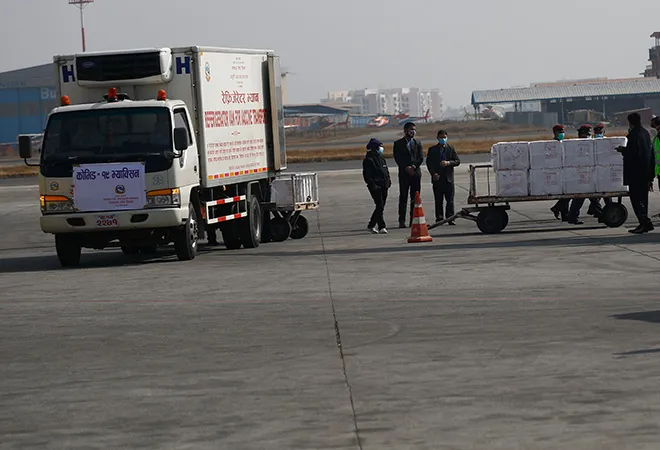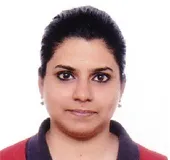
Public opinion surveys usually reflect the attitude of a certain section of the population on critical issues impacting the overall health of a nation. For example, the European Commission and the European Parliament regularly conduct and monitor the state of public opinion through the medium of the Eurobarometer. It gathers further significance when it primarily involves the youth of a nation and how they perceive their government’s choices. Add to it, the prevailing context of an epidemic and ballooning of sustainability challenges. In this case, the ORF Foreign Policy Survey 2021 hits the nail by taking a definitive demographic angle and focussing on the major chunk of India’s population, i.e., below 35 years of age. Although it is a timely Survey conducted in the midst of a pandemic, it is limited in the choice of its sample group, which is restricted only to the urban youth in metros and non-metro cities of India. But the Survey considers this as its plus point, as claimed in its report. It is this that sets it apart from the existing polling research conducted till date. In fact, as per the Survey, the urban youth are the most important stakeholders in the country’s future. The Survey attempts to bring to the fore the views of the urban youth falling between 18–35 age bracket, thereby, examining its resultant impression on the nation’s foreign policy and its external representation. As a one-of-its-kind approach, it takes up several aspects under its belt, including multilateralism and globalisation and also investigates how these opinions are formed, especially in the light of the ongoing pandemic.
The prevailing context of an epidemic and ballooning of sustainability challenges. In this case, the ORF Foreign Policy Survey 2021 hits the nail by taking a definitive demographic angle and focussing on the major chunk of India’s population
Divided chiefly into four compact pieces, the first part of the Survey endeavours to understand the Indian youth’s awareness on New Delhi’s relations with its neighbouring countries and how the bilateral relations fare on the interaction meter. Although it appears that 72 per cent of the Indian youth have a favourable outlook towards its overall foreign policy, it is hard to ignore that almost 89 per cent of them equally prioritised the need of strengthening the economy urgently. The Survey also naturally depicts the fears of the respondents concerning major policy challenges, particularly in the current context of the pandemic and further worsened by growing political instability in the neighbourhood (i.e., Afghanistan) in the form of combating terrorism.
The Survey also naturally depicts the fears of the respondents concerning major policy challenges, particularly in the current context of the pandemic and further worsened by growing political instability in the neighbourhood (i.e., Afghanistan) in the form of combating terrorism.
It also takes into account India’s relations with the P5 countries (China, Russia, USA, UK and France) plus three more nations (Australia, Japan and EU) considering the geopolitical shifts and shocks owing to COVID-19. Not surprisingly, the common Indian youth does not place his/her bet on their Chinese counterparts for support. The trust factor, however, is more inclined towards Washington and also Canberra, given New Delhi’s increasing footprint in the Indo-Pacific scene. One of the major highlights of the Survey comes in the form of the fourth section focussing on the youth’s opinion towards multilateralism and globalisation. With the withered response of the United Nations (UN) in tackling the current health crisis, the Survey reveals a divided house when it comes to India devising solutions, i.e., at a global or a local level, for COVID-19. It would not be wrong to state that although the urban youth is deeply concerned about the rampage caused by the pandemic globally, it is equally dissatisfied with the government’s domestic responses to the crisis. Hence, the house is split apart with 46 per cent wanting New Delhi to think of global solutions whereas 34 per cent concerned about solutions at the national level.
It takes up several aspects under its belt, including multilateralism and globalisation and also investigates how these opinions are formed, especially in the light of the ongoing pandemic.
However, one area where the Survey seems to be lacking is in the domain of India’s development cooperation. In today’s context, international development cooperation forms a critical component of any nation’s foreign policy. Utilised as an effective tool to represent itself positively in its external relations, development cooperation is hard to neglect. It is no longer an arena limited to the developed economies. The likes of China and India or the new emerging economies are gradually occupying centre stage in the global aid architecture. For instance, it would be useful to examine the awareness levels among the youth regarding India’s crucial bilateral and multilateral projects taken up by the Development Partnership Administration (DPA) in collaboration with the Exim Bank. This would certainly set the path for generating serious discussions on the issue, particularly in the context of the Sustainable Development Goals (SDGs). Taking into account the deepening of several global crises, the sustainability narrative is naturally quite close knit with the development cooperation discourse. An assessment of the Indian youth’s opinion on New Delhi’s development partnership initiatives potentially holds the key in goal-setting and prioritising the areas in its foreign policy discourse and strategic thinking in the coming years.
This article is based on the findings of the ORF Foreign Policy Survey 2021: Young India and The World
The views expressed above belong to the author(s). ORF research and analyses now available on Telegram! Click here to access our curated content — blogs, longforms and interviews.




 PREV
PREV


